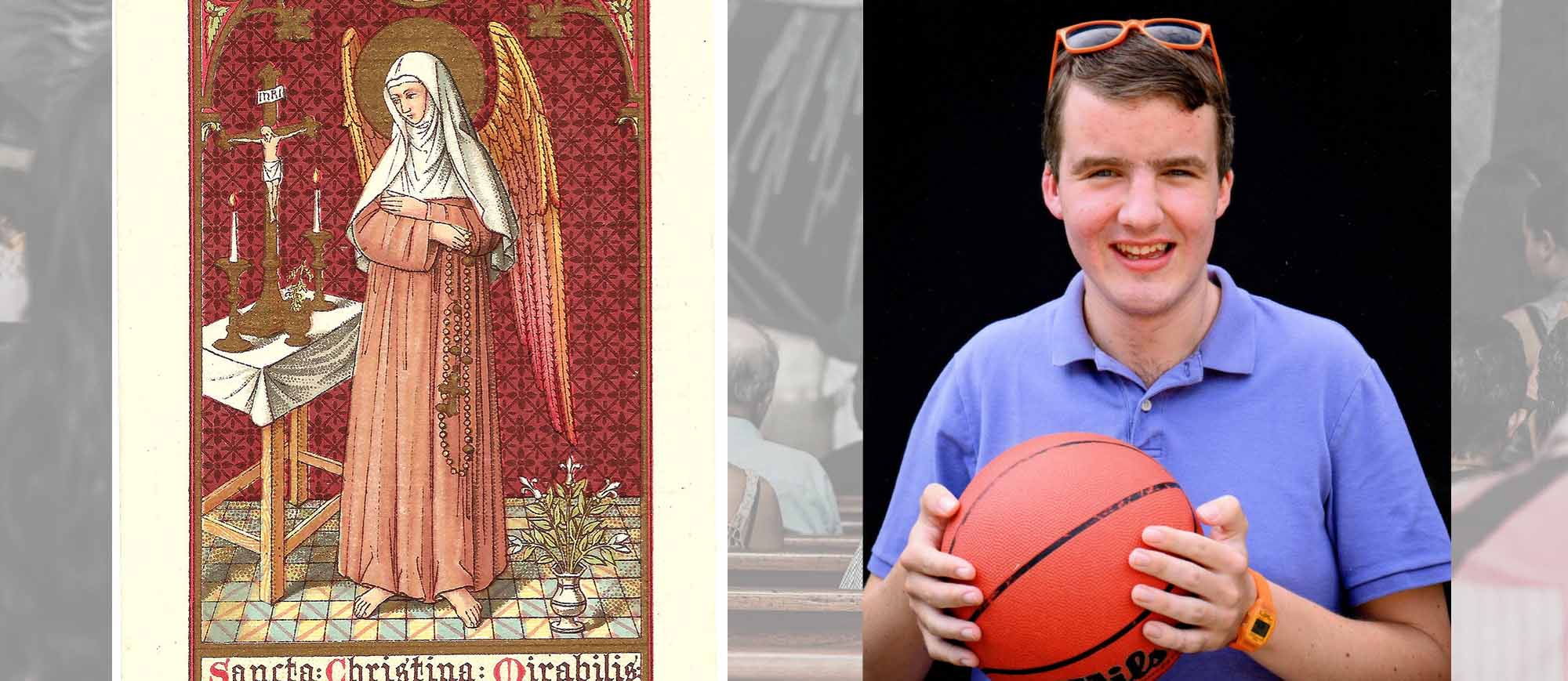After my son, Ben, was diagnosed with autism, I came to see many things through the lens of all that I learned about autism. Sometimes, this led me to view something in a new way. Christina the Astonishing is perhaps the best example of how knowledge about autism opens the door to a new way of understanding something. Although her “legend” is somewhat outrageous and charming, when it is read from the perspective of deep familiarity with autism, it becomes a different story. Allow me to say a little about this “saint.”
The Catholic Church has a long history of identifying human beings who have arrived at perfect union with Christ as saints. Some saints become so well known that they are identified with certain classes or professions of people as their patrons. Devotion to saints can help Catholics live exemplary lives so that they too can one day be united with God.
Christina the Astonishing was born in the middle of the twelfth century and little is known of her early life. When she was a young woman, she suffered a severe seizure and was thought dead. During her funeral Mass, however, she awoke, sitting straight up in her coffin. Legend has it that she flew from her coffin to the rafters of the church and refused to come down because she claimed that she could no longer tolerate being around other people - the stench of sin on them was overpowering to her. Christina spent much of the rest of her life avoiding others and engaging in a variety of odd behaviors. She liked to roll herself into a ball to pray, and she liked to spin; legend has it that she would hang from the twirling arms of a windmill or a waterwheel yet never be harmed. Her unpredictable behaviors scared her contemporaries and they would occasionally tie her up, but Christina became renowned for her ability to escape any restraint. She seemed to have little awareness of hot or cold and is described both climbing into ovens to pray and jumping into chilly waters to swim away and escape. She is reputed to have spoken little and to often have made unintelligible noises; she was more comfortable in the woods, climbing trees and among animals than she was around other people. She spent her final days in a convent, where she spoke and responded to only the Prioress, ignoring all others.

The people of Saint Christina's time understood all this as the result of a vision Christina had while she was thought to be dead. I am more interested in what she did than why. Many of Christina's behaviors remind me of autism: seizure disorders, odd reactions to sensory stimulation, lack of sociability, spinning, imperviousness to extremes in temperature, disordered and limited speech, withdrawal from other people. Therefore, I propose that we claim St. Christina the Astonishing as the patron saint of people with autism.
I do not believe that St. Christina had an autism spectrum disorder. But I do believe that her behaviors frightened, surprised and astonished her contemporaries. Any of you who love someone with autism know how hard they work to learn what the rest of us learned effortlessly and take for granted: how to speak, how to relate to others, how to function independently in the world. I find how hard my son works, and how hard all of his dedicated teachers work to help him, simply astonishing. If you get to know someone with autism, you will likely find them astonishing, too.
Most saints are recommended to us as models of piety or devotion. Not so for Christina the Astonishing. She is a saint because she reminds us that those who struggle with behavioral disorders also serve, like all people, as reflections of God. In every mundane and astonishing effort they put into learning how to live in our world, those with autism manifest the image of God.

